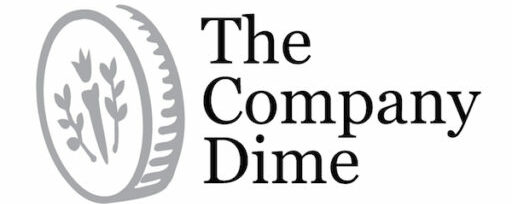In this guest article by David Jonas from The Company Dime, the recent acquisition of CWT by AMEX Global Business Travel is studied and analysed, focussing on what it could mean for customers and the wider travel management industry.
With contributions from a variety of industry experts and analysts, including our recent Travel Talks guest, Andy Menkes, (click HERE to watch the webinar on NDC in the USA market) it’s a fascinating read for anyone working within or with the global corporate travel sector.
It’s not hard to identify potential winners from American Express Global Business Travel’s proposed deal to acquire CWT, besides GBT itself, starting with the largest remaining competitors. Nor is it hard to see some of the losers, firstly global companies that manage travel and would have one fewer option next time they look for a provider. In its announcement, GBT claimed customers would get more choices, but that’s all from GBT. What if you don’t want GBT?
Some picked competing TMCs to avoid GBT. Some, like CWT client Visa, compete directly with GBT part-owner Amex Co. CWT’s cooperation with Spotnana appealed to some clients, but that partnership may not survive the new ownership
Buyers at CWT accounts receiving considerable attention wonder if that will change in GBT’s much larger stable. What about contract terms, service configurations and pricing? Companies doing due diligence on GBT’s tools and systems may take the opportunity to review the whole market
“The question we’re getting from our CWT clients is, ‘What should I be doing in the interim?’ ” said Areka Consulting SVP Charlie Bacharach. “Our advice is to look at contracts and meet with internal legal folks to know the options while waiting for the deal to get finalized. If you’ve got concerns about the deal, start putting some feelers out to alternatives. Start learning what the alternatives may be from a TMC and a tech perspective. Get smart quickly so you’re not caught flat-footed when this gets consummated.” GBT expects that to happen in the second half of the year.
American Express Global Business Travel’s acquisition of CWT has many implications for clients.
The other remaining “mega” global TMC is BCD Travel. It should expect more looks from buyers assessing options, especially for global programs. Otherwise, a lot depends on a company’s travel patterns and program needs. The very largest programs have no other similar contenders to consider, though Corporate Travel Management and Flight Centre’s FCM likely will draw interest
“I think CTM and Flight Centre will be included more and more for multinational contracts,” said MW Consultancy’s Martin Warner. “BCD are potentially a big winner out of this.”
“We’re seeing some procurement decisions to avoid the single award model and instead look by region,” said Partnership Travel Consulting founder and CEO Andy Menkes. A split award lets stakeholders in each region have their say, “and from a competitive standpoint, it keeps players on their toes.
The issue of ownership versus partnership in key markets is paramount, with technology prowess, data quality and systems integration also important. According to Bacharach, all of that is getting better around the industry, allowing for new ways to think about program globalization.
“Some of the corporates we are working with are taking more of an integrator approach, where they’re looking at what’s best for them in each of the markets and are less concerned about being homogenous in terms of the TMC,” he said. “They’re taking the approach of, ‘Let me assemble the best components, and I’ll be the integrator and manage it, as opposed to asking one TMC to do it on my behalf.
Bryan Holmes, founder of TMC sourcing platform Bid Logic Solutions, cautioned buyers to recognize that such a strategy may require lots of internal work. “My consideration of whether I would parse out to different suppliers, first and foremost, would be the finite resource of your time and the people overseeing multiple TMCs and being able to manage it,” he said. “Even if you have the right players, if they are not managed, they’re not the right players.”
Katie Raddatz, who worked for nine years in the CWT Solutions Group consulting arm before starting her own consultancy, NuPath Strategies, also noticed a more “open mindset” for such a strategy and agreed that managing multiple providers can be challenging
“There has been lots of shuffling between CWT and other large players in the industry over the last couple of years; some clients left one agency because they were not pleased,” and now they’re disappointed with the news, she said. “From a competitive standpoint, there are opportunities for other TMCs to take advantage of the distraction or previous dissatisfaction.”
Still, switching TMCs can be costly and painful, and Raddatz said there was a lot to like about a stronger GBT, including stability and culture. She suggested that by moving from a privately owned provider to a publicly traded one, CWT clients finding a new home with GBT will see a “shorter runway” for demonstrating results
“If something is not working, they will change it, and that was not necessarily the approach of CWT,” she said. “From a buyer standpoint, the impatience of things not getting better or addressed in a reasonable timeframe will change.” Raddatz believes a blend of GBT’s and CWT’s expertise in the consulting and meeting and events realms should benefit clients
Warner thinks most customers would “probably not” see this as an opportunity to reexamine the market. “Many had done so recently,” he said. “Some had already moved. GBT is probably the biggest winner here. CWT customers wanted more security around the state of its finances. GBT will pour immense effort into retaining them. They did a brilliant job with that in the HRG transaction.
It would not be surprising to see CTM or Flight Centre make moves to expand global footprints and capabilities, or to see others make a play for big accounts
Menkes said buyers also should include in expanded bidder lists the likes of ATPI, anchored in the United States by Direct Travel (recently acquired by Spotnana’s investors, according to an April 2 announcement), and Gray Dawes, which made acquisitions in Australia and the United States last year, and in the Netherlands this year. Navan claims a presence in 40 markets.
“In certain situations, this could open up a seat to an emergent TMC or a midmarket TMC that has a compelling technology offering that may not have had a seat in that bid before,” Holmes said.
As the age of big reservations centers gives way to remote working arrangements, “that opens the door for more than the top four or five competitors,” said Menkes.
That could appeal to buyers looking for fresh ideas. “What’s at stake goes beyond the merger; it’s about the trajectory of innovation in our field,” according to Greeley Koch of 490 Consulting. “CWT had been focused on modern retailing, adopting platforms like Spotnana and enhancing offerings for their clients. Now, the question I hear travel managers raising is: ‘Will GBT uphold this momentum?’ Travel managers are not settling for the status quo. The marketplace demands transformative change, not merely more of the same.”
Any shake-out in partner networks also could impact buyer selection.
In markets where neither GBT nor CWT owns their operations, presumably only one partner would stay in the fold. This happened when GBT bought HRG. “A lot of those partners ended up going to the Travel Leaders network,” noted Bacharach, who was sales VP at Travel Leaders Corporate before joining Areka in January.
What’s to come in a given market may be determined by regulators. Not many expect U.S. authorities to derail the deal. Even with the biggest possible combination of two players — serving a large number of large corporates and also most of the federal government — the managed travel market is fragmented and features new models and types of competitors. The overall market for travel services is even more competitive.
Observers pointed to France, Spain and the United Kingdom as potentially problematic.
“Getting this through the competition authorities might be trickier in Europe,” said Warner, a former CWT executive. “They both have a lot of market share in France. There may be some conditions put on the deal by certain countries. Clearly, they think they have no problem in the U.S.”
According to Tony O’Connor, managing director of the Butler Caroye consultancy, GBT with CWT would enjoy market shares in some countries that reach a “tipping point” at which others cannot effectively compete, warranting regulatory intervention, he wrote by email.
MW Consultancy’s Martin Warner discusses GBT-CWT merger. MW Consultancy’s Martin Warner GBT’s “competitive advantage through resources and superior commission deals with airlines and hotels could put competitors in a worse financial position and drive further takeovers and collapses,” according to O’Connor.
“If anyone ever had a chance of squeezing supplier revenue, even with AA’s new strategy, it would be GBT with the share and influence they’ve got,” said Warner. “The future for smaller and midsized TMCs isn’t great if airlines accelerate their attempts to disintermediate.”
According to an analysis by T2RL published last month, scrutiny would come only if regulators view the market specifically as “established global TMCs which operate in close cooperation with the GDSs.”
Warner said he had never heard of a regulatory authority defining the market that way. He also believes that recent market developments and airline distribution changes, particularly coming from American Airlines, would support an argument by GBT’s lawyers that the market is larger and more diverse, including unmanaged and small and medium-sized enterprises.
T2RL called regulatory scrutiny unlikely.
“In fact, on current trends, it is likely that regulators will be relaxed if there is further consolidation in this space,” the airline and tech consultancy wrote.
“Future growth in the market for travel management is likely to be predominantly with the new-generation players that are riding the wave of distribution technology, starting with NDC but certainly not finishing there. … In the end, the acquisition of CWT by its bigger competitor may prove to be less important than the shifting strengths of the new versus the traditional providers of travel management services.”
Related Articles
New MD Role for Dave Bishop
Following our acquisition of VCK Travel at the start of this year, we are delighted to announce the appointment of Gray Dawes Group COO, Dave Bishop, as Managing Director of our Netherlands-based operation.
Travel Talks 13: MARINE & ENERGY Travel
In this special Marine & Energy episode of Travel Talks, Bruce Ratcliff, VP of Marine & Energy, and Lisa Titmas, our specialist Marine & Energy Travel Team Supervisor, explore the very real benefits of working with a corporate travel partner to help manage the complex challenges of crewing logistics.
6 Recommendations For a UK Rail Revolution
The UK rail industry has been under serious scrutiny over the past few years, with rising ticket prices, driver shortages, and service-paralyzing strikes placing the plight of train travel at the front and centre of the national consciousness. In this article we take a deeper look at the recent BTA whitepaper: “Getting Our Trains Back on Track! Putting Passengers First” which outlines their recommendations for a positive, passenger-led revolution for train travel.
CALL US
08448 553700
+44 (0) 1206 716111 (if outside the UK)
EMAIL US
ALWAYS HERE
Mon – Sun, 24 hours a day
LET’S TALK
Fill in the form below and we’ll get back to you as soon as we can.



